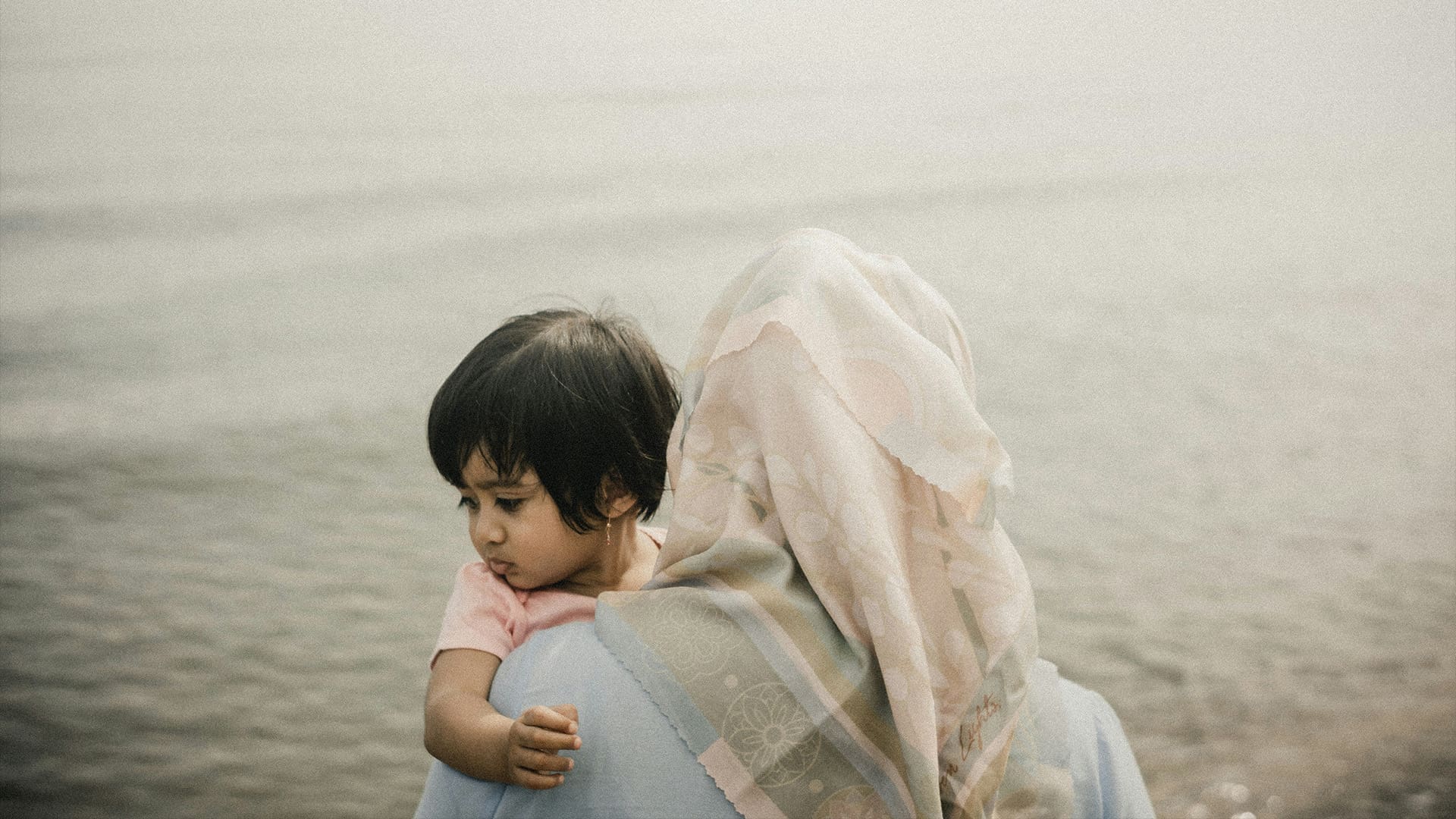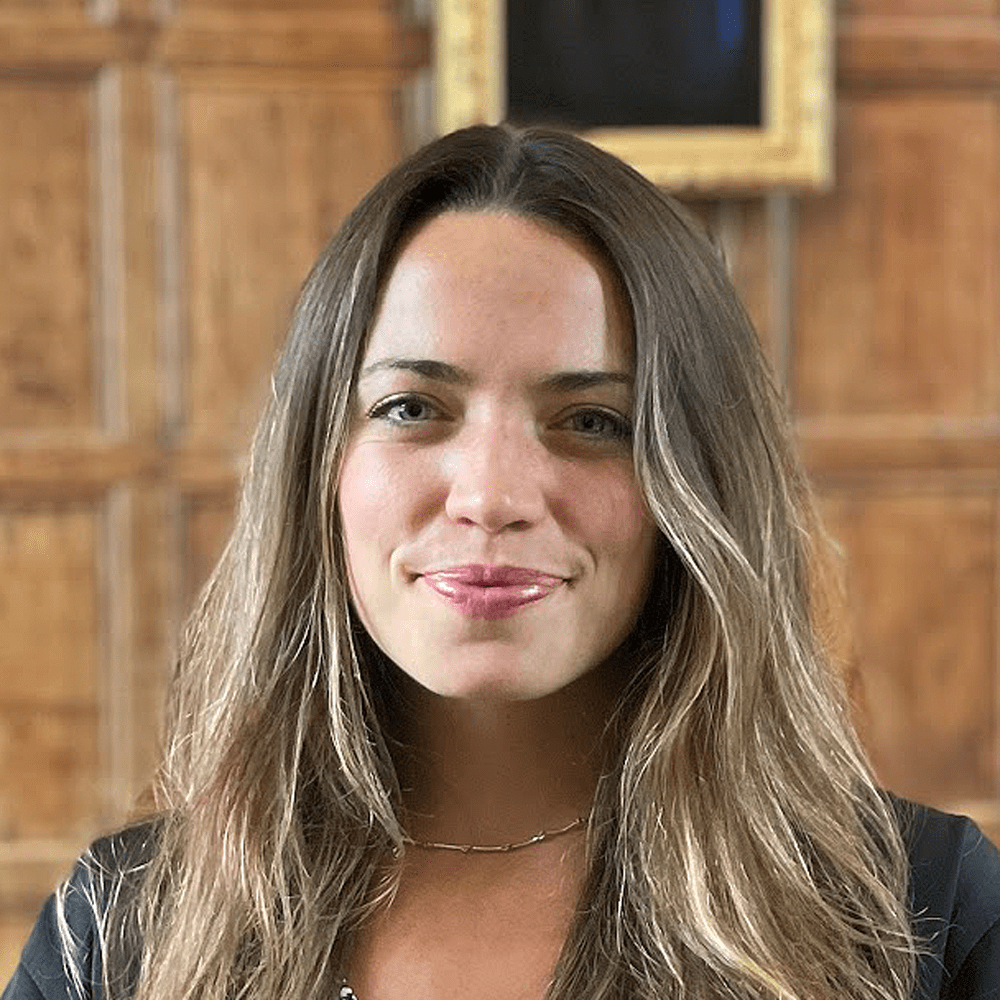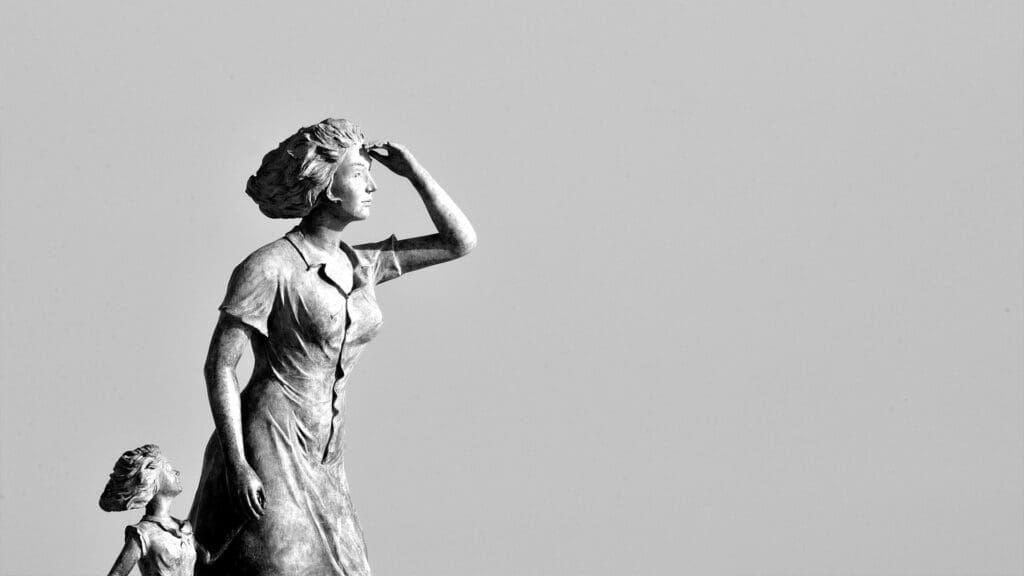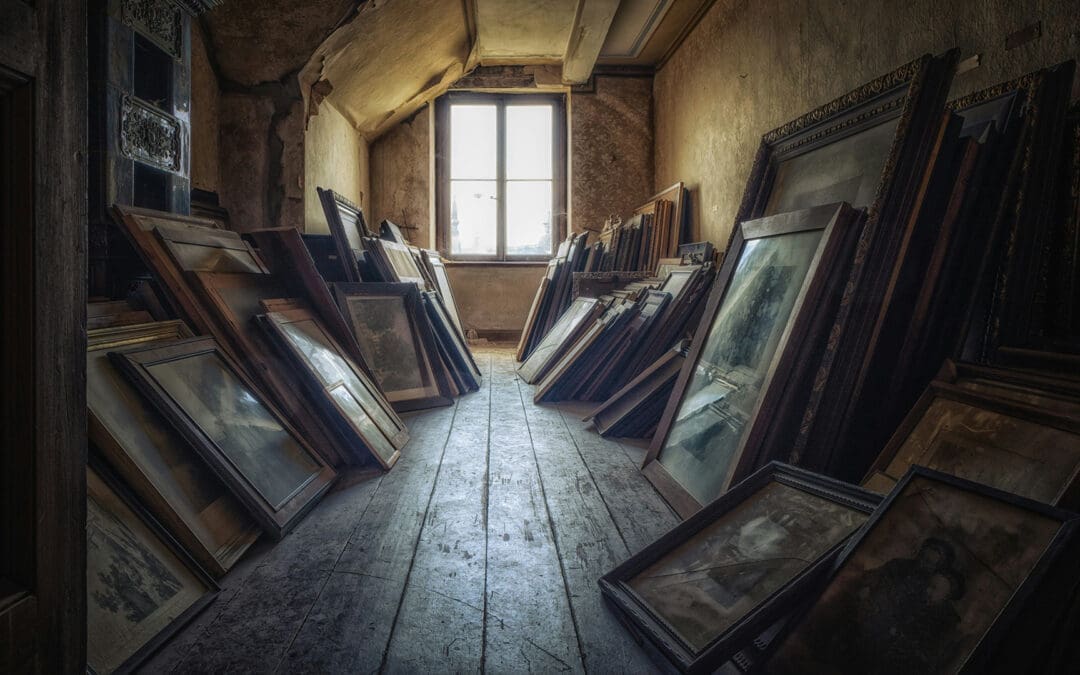T
There is a silent solidarity between women with strollers—especially those trying to navigate urban streets with little ones. This mutuality transcends race, religion, and class, becoming more potent as Western society veers farther away from valuing the way of motherhood. These knowing nods and tiny actions of support between mothers may excavate an unexpected set of common values—those that stretch across cultural and ideological divides.
Over the last year, there’s been a fresh outpouring of content on the failure of multiculturalism as a societal project. Recent events—such as the resurfacing of the Rotherham scandal in the UK, terrorist attacks over the holidays in Europe and the US, and the inauguration of Trump’s deportation scheme—have reignited discussions about social cohesion. Prominent social conservatives continue to raise alarms about the threats posed by mass migration. Yet, in my view, these conversations often bypass a significant overlap in values between social conservatives, particularly evangelical Christians, and Muslim migrant communities, especially when it comes to the matters of family, morality, and the challenges posed by secularism.
On the topic of Islamic immigration, I always notice a peculiar moment that gets buried in the dialogue. This is the moment when the speaker is ready to launch into their concerns and critiques about Islamist migrants and the dangers of their ideologies. Without fail, they make the caveat that the majority of Muslims residing in the West are peaceful, with the speaker acknowledging that they are concerned only about a minority group of Islamic fundamentalists.
What puzzles me is the vapid nature of these moments—how quickly we brush past this “peaceful majority” of Muslim individuals and communities in our midst. What about their values, policy preferences, and effects on our common life? In general, Muslim communities possess innate socially conservative tendencies. In fact, when I look around at the hot-button issues running in conservative circles, the buzziest conversations in the last decade have been about sexual ethics and gender ideology, falling fertility rates, how to preserve community and family structure, fighting wokeism, and an increasing interest in reviving the religious imagination as an answer to modernity’s shortcomings. On many of these topics, Muslims and social conservatives, especially evangelical Christians, might sound identical.
We carry around many of the same fears for our children; we clutch closely many of the same consecrated values. At this moment in history, if the chess pieces were rearranged, those with different backgrounds but similar traditionalist leanings could share much ethical solidarity. During my master’s program at the University of Oxford, this became especially clear. My classmates with traditional religious worldviews, despite coming from different religions, felt like a kind of minority alliance—our perspectives often a gulf apart from our progressive secular counterparts. Yet many conservatives fail to recognize these common commitments hiding in plain sight, choosing not to seriously engage with Muslims’ ethical perspectives.
There are a few reasons for this oversight.
One is that, in the social imaginary of many ordinary Americans, certain ideas about Islam loom large: Islam doesn’t mesh with Western values, Muslims struggle to acculturate, and freedoms are suppressed, especially for women. Many conservatives, especially in the UK and EU context, argue that these conversations have been intentionally sidelined by governments and the media. While concerns about censorship—and about the erosions of cultural norms resulting from multiculturalism—remain important, they can lead to an almost exclusive focus on fears related to Islam, sometimes at the expense of recognizing common ground. Surely it is also worth giving some attention to the countless Muslim families that are doing their best to navigate life as minorities, thoughtfully engaging with their host environment and negotiating their religious and cultural identities with the newfound opportunities and challenges of the West.
Another reason for this oversight might lie in the next phase of the culture war that is unfolding. With conservative parties gaining footholds in many European countries and now in the US, there’s a sense that the current moment offers an opportunity to rebuild the West. Some religious folks might be excited about the emerging civilizational Christianity, an educated faction of globally renowned right-leaning public intellectuals who are calling for the West to re-embrace the Christian story, bolstering it through a return to its roots. Yet this could result in the weaponization of religion, with some in this camp overtly stating that Christianity is a convenient and potent way to oppose Islam effectively in their countries. In these heated conversations, often framed in migration issues and their discontents, the failure to perceive certain virtue alignments is unsurprising.
I have no interest here in commenting on immigration policy or diversity and inclusion, or in promoting a kind of interfaith agenda. Instead, I simply want to acknowledge that we find ourselves in a multicultural reality and, therefore, should ask what political and social solidarity could look like among those with a more traditional religious framework. I’d like, moreover, to poke at some of the little ironies housed in the anti-Muslim conservative rhetoric. Might social conservatives look closer, past the initial stereotypes, and find an unexpected ally with Muslim migrants, particularly as parents striving to raise children amid the pressures of secularism?
An Anthropology of the Good
When I started research for my master’s dissertation at the University of Oxford, I cracked open Saba Mahmood’s seminal book Politics of Piety, a social-science research exposé into the ethical worlds of women involved in the conservative piety movements in Egypt. Suddenly, I felt like I was reading a research study on evangelical women’s Bible studies in the South of the United States, where I hail from. The topic was instantly intriguing to me.
My dissertation ended up looking at how Rohingya refugee women, a Muslim minority group from Myanmar, acted as custodians of faith, preserving and transmitting religious identity throughout migration and upon arrival into Western secular contexts. The theoretical framework I adopted employed the concept of an “anthropology of the good” versus a “dark anthropology.” A dark anthropology, according to Sherry Ortner, an anthropologist at the University of California, Los Angeles, “focuses on the harsh dimensions of social life (power, domination, inequality, and oppression), as well as on the subjective experience of these dimensions in the form of depression and hopelessness.” After working with refugee and migrant communities for five years, I had come across two extremes of dark anthropology: an obsession with oppression common on the left and a kind of demonization or otherization more common on the right.
An anthropology of the good, by contrast, takes into account a more expansive and relational view of migrants’ lives—one that attends to the moral, emotional, and imaginative dimensions of their experiences. In the words of anthropologist Joel Robbins, it focuses on “value, morality, well-being, imagination, empathy, care, the gift, hope, time, and change.” I looked to Charles Taylor’s theory of secularization to diagnose the characteristics of modern life, arguing that migration into secular countries did not always lead to religious decline. Rather, I posited that communities worked together to preserve it and capitalized on new opportunities for religious education and worship.
The “stickiness” of Islam, its ability to persist, is the exact thing many social conservatives fear—that Muslim communities will not integrate and will continue with their religious practices and cultural norms. Of course, this is ironic. This stickiness is the very quality social conservatives yearn for among themselves. The more I researched, the more I found myself—as a religious person in the West—feeling a timely congruence. I found myself applying an anthropology of the good to my own community. I longed for us to manoeuvre and innovatively labour toward preserving the beauties of our religious traditions, even when the conditions of modernity encroach.
Our greatest fears are the flip side of our greatest loves. Those operating from a more traditionalist paradigm—whether Muslim or Christian—all believe that there is a set of norms worth preserving. Further, we care deeply that our specific moral heritages are passed down and clung to by our children.
Maybe there are anthropologies of the good to be told about Muslim immigration to the West beyond a mere malaise of Pollyanna diversity. Maybe there are hopeful narratives, concretely grounded in emerging opportunities for the revival of the religious imagination in society, political action, and meaningful friendship between Muslims and social conservatives, founded on our shared loves and discovered through our shared anxieties.
Sacred Fears
The worries of a mother are undoubtedly universal. While all long to see their children healthy, happy, and secure, the means by which to achieve these outcomes, of course, vary wildly by tribe. Here are some of the big fear factors for those who aim to conserve, divided into two overarching categories: the erosion of community structure and the loss of sacred values.
First, the erosion of community structure. To properly belong, the religious person says to look upward and outward, looking beyond the self. In contrast, the more modern, individualistic mindset places a premium on personal autonomy and internal self-discovery, trusting their own reasoning and desires. While both religious and non-religious individuals can find comfortable common ground on issues like democracy and human rights, these principles are increasingly contested. In a society where classical liberal institutions are under fire and face growing cynicism, both groups rely more on their own ethical systems for direction. This divergence raises a central question: What forms the foundation of our moral framework? Is it individual authenticity and autonomy, or is it the preservation of family and community?
This fundamental ontological difference underscores one of the greatest commonalities I’ve experienced with my Muslim friends—a shared skepticism of the self, an inclination to question individual autonomy, and an understanding that relationships should require sacrifice. Christians are called to “die to the self,” a mandate from Jesus reiterated by Paul. For both Muslims and Christians, the desire to uphold communal values and divine counsel often requires restraining the unchecked freedom of the self.
This concern with the cancer of individualism is not unique to religious communities. In fact, it has become a central issue in the West, where there is growing anxiety about the breakdown of social bonds and the endemic loneliness crisis looms. Derek Thompson’s early 2025 piece in The Atlantic, “The Anti-social Century,” showcases just how drastically the sociability of our nation has declined. He points to metrics like the decreased numbers of dinner parties and other communal leisure activities, skyrocketed numbers of hours on screens, and an increase in solo dining. Americans are trending toward isolation. Taylor describes this shift in modern Western consciousness as a default to an individualist framework: “We seize ourselves first as individuals, then become aware of others and forms of sociality.”
This individualism contrasts starkly with pre-modern or non-Western conceptions of identity, where one’s sense of self is “embedded” within society and defined by communal relationships. Taylor argues that in more traditional models throughout history, “our first self-understanding was deeply embedded in society,” and our personal identity was inextricably tied to our relationships with others. This shift from embeddedness to individualism carries profound implications, especially in areas where both conservative Christians and Muslims share deep concerns: the rise of technology and the erosion of family structures.
The second overarching category of fear factors is the loss of sacred values. I am continually amused by the number of church campaigns advocating for “life together,” begging their congregation to just have one meal together with friends. To fix our situation in the West, we listen to podcasts, read Substacks, download starter packs, and inhale resources on how to resuscitate our common life.
When I lived in an apartment complex of predominantly resettled Afghan refugee families outside Atlanta, Georgia, I imbibed a whole new set of social norms. Knock on your neighbour’s doors often and chat for a while when you see each other around. Go on evening walks with the friends in your block regularly. Let your kids play together and have an informal watch system between households. Spend less hurried time outside. Cook enough food for more than just your family. Always have snacks and tea ready in case someone drops by.
Is it outlandish to suggest that we take some notes from those who have migrated to our country and have been able to preserve those communal structures?
It is relationships that nuance our political views, soften our claims, and even change our minds.
The Bible and the Qur’an both highlight the monumental figure of Abraham and the story of his hospitality to three strangers, a symbol of profound generosity and moral duty. In both traditions, hospitality to strangers is more than just politeness—it’s a reflection of a deeply rooted moral code that prioritizes community and kindness over self-interest. The Qur’an underscores this, saying, “Whoever believes in Allah and the Last Day, let him show hospitality to his guest,” a call that extends not only to family or friends but also to strangers. In Islam, hospitality passes beyond a mere virtue and is an expectation. While certain levels of integration are important, many Muslims maintain ways of life that help preserve tight-knit communal networks bubbling out of their religious ethos and practice. Of course, some contextual challenges are important to address—like conservative norms around dress and gender and rigid forms of in-group accountability. How these are acted out in public life in the West should continue to be debated, and the vulnerable should always be defended. But here I propose diving into a different discussion: What mechanisms do Muslim migrants utilize that make them often succeed in nurturing communal bonds, grounded in a sense of belonging, care, and mutual responsibility?
Sex, Mothers, and Pronatalism
One area where growing individualism and fracturing societal values have become particularly evident in America is that of sexual ethics. This is an issue where conservatives and progressives hold vastly different views on human flourishing.
Notably, the conservative position on sex education has been increasingly championed by Muslim communities and other more traditional religious minority groups who are hesitant about their children being exposed to LGBTQ+ agendas in the classroom. Research by Pew found that almost 50 percent of Democrats wanted their children to learn that biological sex doesn’t determine gender, while the majority of Republicans wanted their children to learn that biological sex correlates with gender or to not cover the topic in school at all. With the school curriculum wars peaking during the pandemic, many socially conservative parents began opting to homeschool or send their children to private schools, which aligned more with their values, as seen in the trending rise of church-affiliated schools. In interviews for my research, several migrant mothers voiced their strong preferences for Islamic schools—longing for their children’s education to possess a morally formative nature in addition to academics. They worried about their children in secular schools who, without religious-based ethical instruction, might be more susceptible to teen pregnancy, gang involvement, drugs, or alcohol.
For many of these women, the sexual ethics they observed in the West—particularly dating apps, pornography, and casual sex—felt deeply disconnected from the values they wished to instill in their families. The women I interviewed were simply unimpressed. They saw these actions as directly correlated to the breakdown of the community, leaving Western women deeply unhappy. For these women, Islam’s principles offered something more fulfilling, a stabilizing alternative to the liberal sexual norms they saw around them. They were more attracted to Islam’s emphasis on piety and marriage, believing it preserved the family unit by promoting committed, faithful relationships.
But who has been midwifing and preserving these communal bonds? Mothers, of course—and may we honour them together. Yet modern young women are less naturally drawn to all the gritty labour and sacrifices bound up in the birth of and daily care of children. They are right to be hesitant when contemporary motherhood often looks like long days isolated at home alone without support from extended family or the frantic pace of full-time work and daycare pick-ups. Besides the tiring effort involved and the less-than-ideal conditions, the drop in social status (whether real or perceived) that attends motherhood makes it less appealing to young Western women.
The name of Louise Perry’s popular podcast, Maiden Mother Matriarch, is inspired by the upward trajectory of respect historically associated with the stages of a woman’s life in traditional societies, where the young mother and the wise, older women are revered. Modern Western society, meanwhile, has become fixated on the maiden, where “it’s embarrassing to be a stay-at-home mom,” and where the mother and the matriarch spend substantial amounts of money to cling to their maiden-ness. In many parts of the metropolitan West, where one is more likely to receive positive attention for their dog than for their baby in public spaces, where baby-free weddings and cafés are becoming more common, and where a pregnant woman might be asked whether she’s considered the environmental impact of her choices, motherhood subconsciously loses much of its shine.
But Muslim communities have, for the most part, successfully avoided much of this encroaching stigma. According to Prophet Muhammad, “Paradise lies at the feet of mothers.” The conviction that women play a paramount role in shaping the household’s morals and the future generation’s character is generally held by religious scholars and Muslim families alike, endowing mothers with a certain respect in the community. This instinct engenders a pronatalist environment with larger family units, easily noticeable in many Western countries that aren’t even making replacement birth rates.
Preserving Sacred Moral Heritages
Social conservatives and Muslims share another deep, almost urgent concern: passing on sacred values to the next generation. Whether it’s a devotion to virtue or a commitment to religious belief, the fear of losing these foundational teachings—especially in the shifting contexts of modernity—drives both communities. For both groups, there’s a sense that if these values are not instilled in their children, the very moral fabric of society will unravel. This isn’t simply about maintaining tradition for tradition’s sake; it’s about safeguarding the wellspring of identity and community. But it is also about the earnest desire to see their children continue in sincere belief. In my research interviews with Muslim mothers, I sensed the spirit of Monica, Augustine’s mother, in their persistent prayers and intense desire for their children to cling to the faith. I’ve heard many similar longings in my evangelical church communities in Alabama, mothers who want more than anything for their children to personally know God and live their lives accordingly.
While Muslims and evangelicals share similar fears of religious identity and traditional values fading as their children come of age, they also share similar opportunities. Justin Brierley charts the reviving interest of faith in the West in his new book and podcast series, The Surprising Rebirth of Belief in God. Public intellectuals and YouTube philosophers are carving out an online sphere for young people hungry to reconnect with God after the fall of New Atheism and their own disenchantment with the institutions they trusted. Interestingly, Masooda Bano has dedicated her research to observing a similar upward trend of religious belief among Muslim youth in the West. She examines and takes seriously the appeal of conservative Islamic movements to a younger demographic who, by all measures, should be growing less religious as they are further exposed to secular contexts. What she is finding is that young Muslims are investigating, questioning, and identifying new ways to engage with Islam. As one of my own research-interview participants put it, “The move [to America] really helped me open the doors to actually understanding religion.” Another participant recalled how she and her friends would sit at their school lunch table in Ireland and chat about YouTube videos and share Instagram reels about different female figures in Islam. Bano would say this phenomenon is not a passive embrace of dogma but an active, intellectual engagement with their spiritual heritage. Whether it’s young Muslim women becoming more religious in a thoughtful and intellectual way or young men who are former atheists and open afresh to the Christian faith, Bano and Brierley see a generation that is reclaiming faith in a way that’s both rational and deeply rooted in their experiences.
In this context, secularization, far from signalling the death of religion, may in fact be fostering its renewal. As Charles Taylor suggests, secularism doesn’t necessarily lead to religious decline but, as Bano clarifies, can inspire a “greater degree of creativity” within religious practice, which is often more adapted to contemporary life, utilizing technology in innovative ways. Charles Hirschkind even goes so far as to argue that the fragmentation brought about by modernity makes it possible for traditional practices to be reclaimed and revitalized. So, while some argue that migration either speeds up religious decline or fuels radical identities, what we might be seeing instead is the emergence of a dynamic and evolving form of religious belief among young Christians and Muslims who are often drawn toward more traditional expressions of faith, looking for something otherworldly.
Current Opportunities and Future Challenges
Undoubtedly, there are clear differences between the worldviews of social conservatives and Muslims that cannot be ignored—and while there may be important overlaps, their ideals have evolved via different intellectual histories and philosophies. As Shadi Hamid warns in a Zealots at the Gate episode, the language of “working together” can too quickly gloss over the very real distinctions. We must avoid collapsing these differences into relativism or an oversimplifying interfaith dialogue. Yet we should not ignore burning commonalities between us that are particularly salient today in the West.
In the end, the actions of parents—how they raise their children and the values they instill—will heavily shape the future. The solution to bridging divides must, in part, lie in living as neighbours and engaging in meaningful conversations that foster mutual respect and understanding. You can believe that mass-immigration numbers should be reduced and still have lovely dinners with your Muslim co-workers or neighbours. It is relationships that nuance our political views, soften our claims, and even change our minds. There’s an opportunity for more than just passive co-existence between social conservatives and Muslim migrant communities; there’s a chance to recognize our quite similar sacred values like family, virtue, and faith—common ground that, in usual circumstances, makes for good friends. If not this, the understanding of our similar tendencies could at least create more fertile soil for collaborative political action or simply build stronger social trust in our cities.
The urgency of this message might have seemed more apparent during the Biden administration and over the past decade as progressivism surged forward. But now conservatism is gaining a new foothold in the shifting political landscape. The centres of power are being reconfigured, and this may reduce the perceived need for alliances between Muslims and social conservatives. After all, the latter, at least, are no longer the underdogs. In my view, this message is more relevant than ever. While certain traditionalist values, like two genders and monogamy, may swing back in vogue, Mark Sayers says, “We’re going to be hearing a lot less about transgenderism and more about transhumanism.”
What does this next phase look like? Will it usher in a new kind of techno-paganism and an even stronger emphasis on productivity and efficiency as national values, further fragmenting our communal networks? For many socially conservative groups, especially for those who are religious, this raises a whole new set of concerns. According to Sayers, the key question moving forward will be about what it means to be human. Again, in this new world order there may be fresh forms of overlap between groups that submit themselves to something higher and refuse to play God. Mothers have always intuited the value, vulnerability, and beauty of human life. We need their collective insights more than ever.






